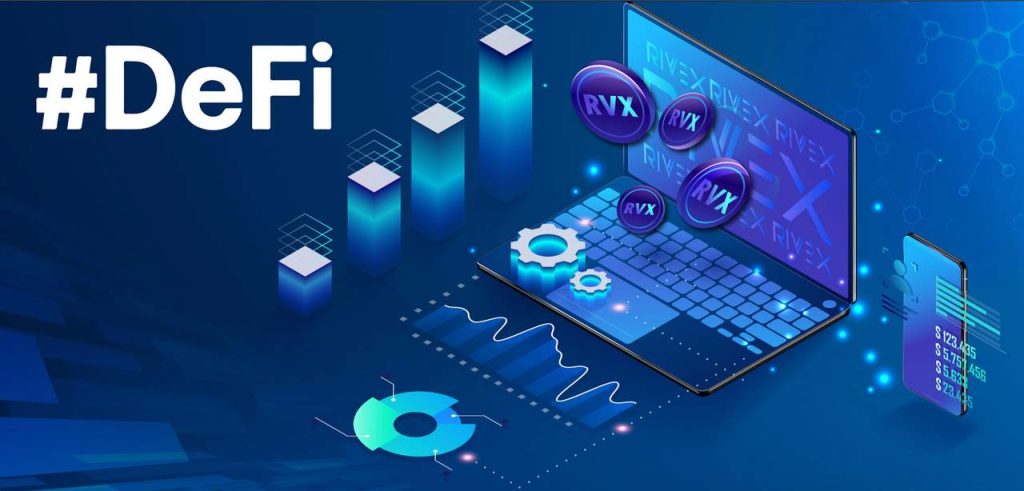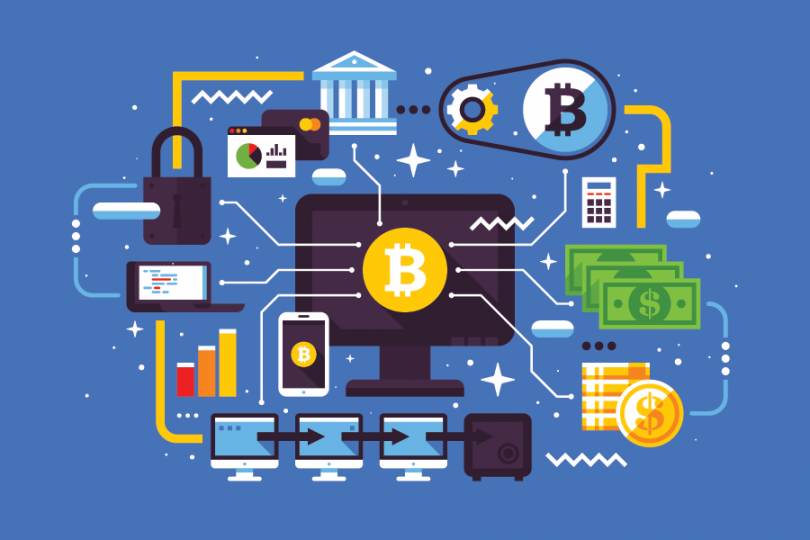The integrity of our elections is a pillar of democracy. But with rising worries over election security, a burning question looms: Can blockchain prevent voter fraud? I’m here to dive into that question, putting forward a clear-cut look at how blockchain might just be the game-chainer we need. We’ll explore the nitty-gritty of blockchain’s role in voting, from ensuring secure systems to real-time vote tracking. Get ready to dissect ledger technology’s power to carve out a path to immutable vote records and how it can enhance trust across the board. Stick with me, and together we’ll unravel the potential for blockchain to write the next chapter in electoral history.
Understanding Blockchain’s Role in Voting
The Mechanics of Blockchain Technology in Elections
Blockchain can change how we vote. It’s like a digital ballot box that no one owns but everyone can trust. When you vote, the system puts your vote into a secure ‘block’. Then, it adds this block to a chain of other votes. That’s why it’s called ‘blockchain’.
Each vote has a unique code. This code keeps your vote safe from being changed. With blockchain, once you vote, no one can change or remove your vote. This is key to stopping fraud and making sure every vote counts.
But how does blockchain do this? It uses something called ‘cryptography’. It’s like a secret code that only you and the system know. This means only you can say who you vote for.
Ensuring Secure Voting Systems and Voter Verification
A big part of voting is making sure it’s really you who’s voting. Blockchain does a great job at this. It checks your ID in a way that’s safe and keeps your info private. When you vote, it checks you off on a list without giving away your name.
This way, no one can pretend to be you and vote more than once. And since every vote is tracked, we can see if someone tries to mess with the votes. The cool part? You can see your vote got counted but no one knows which vote is yours.
With blockchain, even the people running the election can’t mess with the votes. It’s not like a normal list where they can just cross out names or add fake ones. The system protects your vote from start to end.
Can blockchain stop cheats? Yes, it can make it much harder for people to mess with votes. It’s like a strong lock on our votes, and that helps everyone trust the system more.
Voting with blockchain isn’t just about keeping votes safe. It’s about making sure the whole process is clear and honest. That’s how we keep our democracy strong, for everyone.
Think of blockchain as your trusty friend in the voting booth. It’s there to make sure your voice gets heard just the way you want it. And it stands guard after you leave, keeping your vote locked away safely. This way, we can all feel good knowing our votes really matter.
With blockchain, our elections could be safer and more fair. It’s not just a dream. Some places are already trying it out. And it’s working. This could be how we all vote one day.
What’s really exciting is how this could change politics. More people might vote if they know it’s safe and easy. And when more of us vote, we make sure our leaders really represent us. That’s a big step for democracy.
So remember, blockchain is more than just tech talk. It’s a new promise for our votes, making them safe and sound. And that means a lot for how we choose our leaders and make our voices heard.
The Fight Against Electoral Fraud
Ledger Technology for Immutable Vote Records
Imagine a world where your vote is safe as money in the bank. That’s the magic ledger technology brings to elections. It makes vote records that no one can change. Picture a big book that safely keeps each vote. This is how blockchain stops people from messing with votes. Now, each vote gets locked tight the moment someone casts it. So, you know your voice counts and stays just as you wanted.
Decentralized Voting Mechanisms and Real-Time Vote Tracking
Now let’s talk about how votes move and get counted. Normally, votes go from place to place until someone adds them up. But, what if we could watch them the whole time, like tracking a package online? That’s what decentralized voting does. Each step of your vote’s journey is clear to see. No sneaky changes, no hidden stops. Just your vote, flying straight and true to be counted with all the others.
Turning ballots into bits moves us closer to beating electoral fraud. With blockchain, we take on anyone trying to twist the truth. It guards our votes with the tough math of cryptography. And it says yes to every check we want to make sure things are fair. Just as you trust banks to keep your money safe, blockchain earns that trust for votes too.
This tech builds a shield around our democracy. It keeps an eye out for the bad guys and makes sure they can’t steal or swap our votes. People everywhere are looking for ways to make voting speedier and more honest. That’s why so many are turning to blockchain. It’s like a superhero for our votes.
Here’s the bottom line: With blockchain, no one can mess with our votes. Once we vote, it’s set in stone. We can watch every step as they’re counted. And, just like in a game, we all agree on the rules that make sure things stay fair. What’s not to love about that?
This is our chance to push back against cheats and lies. With blockchain, we lift the curtain on voting, letting everyone see the truth. It makes sure our voices get heard just like we shout them, loud and clear. We can put a stop to tricksters who try to play with our elections. This is how we make sure every vote matters and trust in our elections soars.
Take it from me, as someone who lives and breathes this tech. Blockchain is the key we’ve been looking for. It locks away our votes, safe from any funny business. And it lets us all watch, every step of the way, as our democracy does its thing. This isn’t just a dream. It’s the future, and it’s a future where every vote counts.
Enhancing Transparency and Trust in Elections
Cryptography and Public Trust in Voting Technology
When we vote, we trust that our choice counts and stays safe. Yet, stories of election tampering make us doubt. Blockchain can change this! It’s like a super-safe lockbox for votes. It uses tough math, called cryptography, to keep votes secret and secure. Each vote gets locked up tight, and everyone can check that no one has messed with it.
By using blockchain, we share one big promise: everyone’s vote is safe. Imagine a glass ballot box, but no one can break it, and everyone can see if someone tries. This builds trust. We can relax, knowing our vote matters.
Cryptography means that our vote is a secret code. Only the right key, which we have, can unlock it. It’s like a secret handshake between us and the election. No one else can sneak a peek. So, we can be sure that what we vote is what gets counted.
Auditing Election Results With Blockchain
We also worry if someone might mess with the results. Not with blockchain! Every vote is recorded on many computers. Messing with one won’t change the others. To change a vote, someone must change them all at once. And that’s nearly impossible! So, when it’s time to count the votes, we know they’re the real deal.
Blockchain helps us check up on things. It’s like having a watchful eye on the election, always. And smart contracts, just a bunch of rules in code, make sure everything runs as it should. No rule-breaking allowed!
Auditing is now easy as pie. Each step, from voting to counting, leaves a clear trail. If we need to, we can look back and see everything’s in order. Did a vote go in right? Did it get counted? Yes, we can check it all! And with a clean audit, we know the winner won fair and square.
Blockchain isn’t just about keeping votes safe. It’s about making sure we all agree on what’s fair. And when we do, we all win, no matter which box we tick.
The Future of Blockchain in Electoral Systems
Electronic Voting Security and Technological Safeguards
We are always trying to make voting safe and fair. Big words like “blockchain technology” can sound scary, but it’s just a fancy way of keeping votes safe. Think of blockchain like a digital lockbox where we stick all our votes. Once they’re in there, no one can change them. This lockbox is really secure because it uses special math problems, called cryptography, to keep votes safe from hackers.
Now, you might ask: “Can blockchain stop folks from cheating in elections?” Yes, it can help a lot. Every vote in a blockchain system gets its own special mark. This is like putting a sticker on your test at school, so the teacher knows it’s yours. These stickers stay the same forever, so you always know if something fishy is going on with the votes. Also, with blockchain, every computer in the network checks the votes. It’s like having the whole class watch while the votes are counted, so no one can cheat.
Scalability and Privacy Concerns in Blockchain Voting Systems
But wait—there’s more to think about. With so many people voting, can blockchain handle it? Sure, but it’s not easy. We gotta make sure the blockchain can grow to keep up with all the votes and keep them secret at the same time. It’s like making sure there’s enough room in the classroom for all the kids and that they don’t peek at each other’s tests.
Privacy is super important too. Nobody wants others to know who they voted for, right? Well, blockchain keeps your choice a secret. But we must do this without messing up. For example, we need to check that you are who you say you are without telling the world your name. It’s like getting a special secret code for voting that only you know.
With blockchain, we can make voting way better and build trust. No one wants a bully saying they won when they really didn’t. By using these digital lockboxes and our class-watch system, we can beat the bullies and make sure every voice counts.
Just remember, tech can always get better. We’re working on making it perfect so everyone can trust it. In the meantime, it’s good to know that our votes are much safer with blockchain than they used to be. And that’s a big win for all of us who believe in fair play and having our say!
In this post, we dove deep into how blockchain can change voting for the better. We saw how this tech makes elections secure and keeps votes safe from change or fraud. It also lets us track votes in real time, which is a big win for honest elections.
Transparency and trust are key in voting, and blockchain brings both. By using complex codes, we can trust that our vote is private and counted right. Regular checks on election results mean we can trust the final count.
Looking ahead, the tech must tackle big challenges around safety and keeping personal info private. Yet, the promise is clear: blockchain could mean safer, more reliable voting for everyone. Let’s keep our eyes on this space as it grows and improves. It could be a game-changer for how we all vote in the future.
Q&A :
Can blockchain technology enhance the security of our voting systems?
Blockchain can potentially enhance the security of voting systems by providing a decentralized and tamper-proof ledger. Once data is recorded on a blockchain, it is difficult to alter without detection, increasing the integrity of the voting records.
How does blockchain reduce the risk of voter fraud?
Blockchain reduces the risk of voter fraud through its transparency and immutability. By creating a public record of votes cast, it is easier to verify the authenticity of votes and deter tampering, as each vote is cryptographically secured on the blockchain.
What are the benefits of using blockchain for elections?
Using blockchain for elections can offer various benefits, such as increased trust in the electoral process, reduced costs by eliminating the need for paper ballots, and faster, more reliable results due to real-time vote tallying.
Are there any successful examples of blockchain-based voting?
Several pilots and small-scale projects have tested blockchain-based voting systems successfully. However, widespread adoption is still in its infancy, and comprehensive, large-scale implementations have yet to become mainstream.
What challenges must be overcome to implement blockchain in national elections?
To implement blockchain in national elections, several challenges must be addressed, including scalability to handle large numbers of voters, ensuring voter anonymity, and providing accessibility for all voters, as well as legislative and regulatory adjustments.




RELATED POSTS
Greg Maxwell: Influence in the Cryptocurrency world
Greg Maxwell is one of...
Challenges Facing the Future of Blockchain: What Lies Ahead?
Challenges facing the future of...
Blockchain Security Essentials: Navigating the Regulatory Terrain
Understanding the Regulatory Landscape for...
HOT!!! Notcoin Accuses Bidget of Lying!
Notcoin Accuses Bidget of Lying!!!...
National Security Agency and Blockchain Technology
In an era of escalating...
Unlocking the Blockchain: Comparison of different consensus mechanisms
Understanding different consensus mechanisms in...
What is ZetaChain? The Omnichain Blockchain platform
What is ZetaChain? Discover the...
Fishwar Airdrop – Play to Earn on the Sei Blockchain
Fishwar Airdrop, a prominent project...
Variational Airdrop: VAR Token hunting guide
Variational is a Peer-to-Peer (P2P)...
Unlocking Fort Knox: How SSI Integration Bolsters Your Security Fortress
Unlock Enhanced Security with SSI...
Who has Andrew Tate’s Crypto Wallet?
Who has Andrew Tate’s Crypto...
Unlocking the Secrets: Role Of Cryptography In Blockchain Security
Reinforcing Blockchain Security with Cryptographic...
On-Chain Analysis Drawbacks: What Investors May Be Overlooking
Discover the disadvantages of on-chain...
What are the benefits of blockchain: How It Transforms Business and Daily Life
Discover the benefits of blockchain...
What Is A Distributed Ledger: A Beginner’s Guide
Unveiling the Fundamentals of Distributed...
Unraveling the Mystery: Cryptocurrency vs. Blockchain Demystified
Understanding the Difference: Cryptocurrency vs....